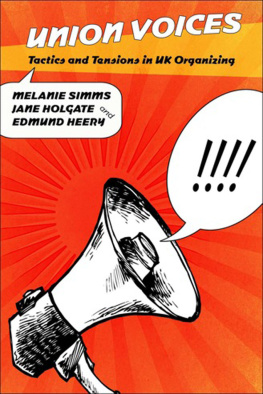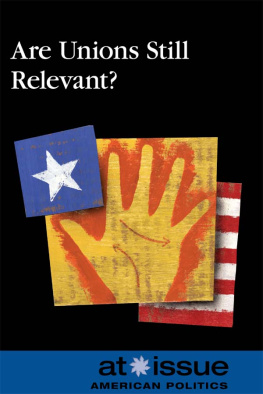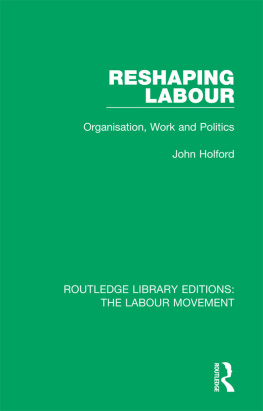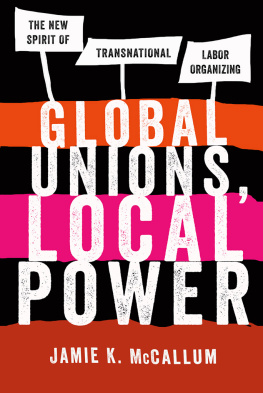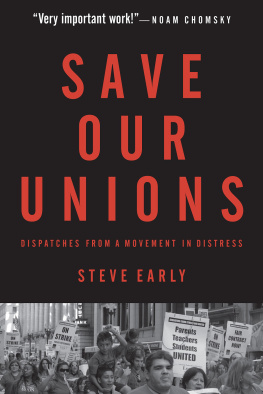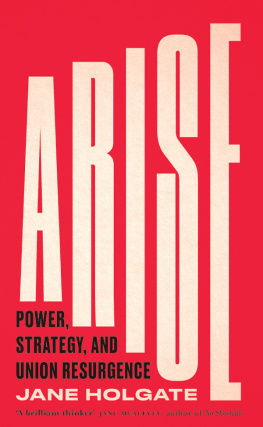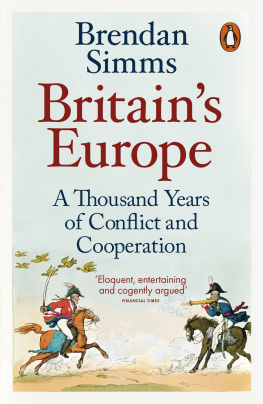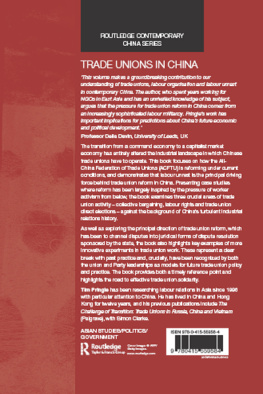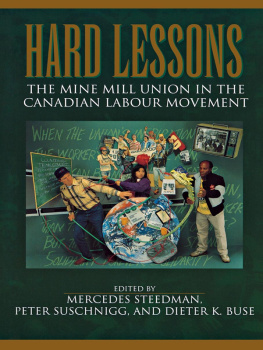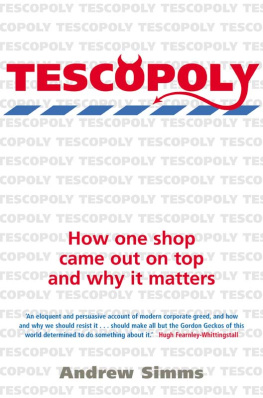A CKNOWLEDGMENTS
Many people have contributed to the writing of this book, although we alone are responsible for any errors. We want particularly to thank the various institutions that have funded parts of the research since 1996, specifically the Nuffield Foundation, Cardiff University, and the Economic and Social Research Council. The Trades Union Congress (TUC) has given us support, access, and sponsorship in kind, and we are very grateful for their help. Our own universities have been extremely supportive, as have those of other institutions we have worked at over the past decade and a half. To our colleagues, we offer thanks for their consistent support in the lengthy process of researching and writing this book. We also thank our colleagues at the Industrial Relations Research Unit at the University of Warwick and the Working Lives Research Institute at London Metropolitan University for their support of and enthusiasm for this project.
Individual unions have also been extremely supportive and patient by allowing us access to campaigns and being generous with their time. We cannot possibly list all of the people who have helped us but they know who they are and we are very grateful. And to the officers, organizers, members, and workers involved in fighting the campaigns we have studied, we offer our profound thanks and best wishes.
Of course, books dont get written without support from those in our lives outside work. To them we also offer our thanks for their continued support, patience, and enthusiasm. La Muse writers retreat in France also helped make the process possible.
Interested readers can find detailed discussions of the research methods we have used for different phases of the data collection throughout this thirteen-year research project in much of our previous work (see, for example, Simms and Holgate 2010a, 2010b; Simms 2007a, 2007b; Holgate 2005; Heery et al. 2000a, 2000b, 2000c). Nonetheless, it is important to highlight the main bodies of evidence on which we base the comments and discussions that we outline in this book. Between us, we have been studying organizing policy and practice in UK unions since 1996, but we were involved before then as union activists. Initially the research was undertaken by Edmund Heery who became interested in the restructuring of the TUC and its efforts to promote union renewal (Heery 1998a). He carried out a series of around thirty-five interviews between 1996 and 1998, during the time that the TUC was developing the Organising Academy. In 1998, he secured research funding for an initial period of three years, for a project that would involve a researcher being sent to the first year of the Organising Academy training as a participant observer. Melanie Simms was hired as that researcher, and in addition to extensive periods of observation at both training sessions and in the work of organizers during the campaigns they ran, we carried out over the next three years a further set of 120 formal interviews with policymakers, organizers, their coaches and mentors, activists, and other key participants. Some of these were done on the telephone, but most were lengthy face-to-face discussions. And, of course, the periods of observationand sometimes participationafforded the opportunity to engage in extensive informal interviewing.
Between 1998 and 2002, we also undertook four important surveys. We surveyed all UK unions on their organizing policy and practice in both 1998 and 2000before and after the statutory recognition legislation. Between 1998 and 2003, we surveyed all academy organizers during their final training session, asking them for their immediate reflections on their training year. And we also asked them to complete a survey relating to the organizing practices they used in specific organizing campaigns they had been working on. Many of the questions that we used in these surveys replicate each other, which allows a good view of organizing practice at different levels of the unions.
Alongside this, Melanie also started her doctoral research. Following five successful organizing campaigns in detail and over a longitudinal period (19982005), she was able to get the kind of in-depth data that were needed to comment on organizing practice in specific contexts. At the same time, for her own doctoral studies, Jane Holgate was undertaking a similarly in-depth study of the particular challenges facing black and ethnic minority workers during organizing campaigns. These thick descriptions of UK organizing campaigns have been invaluable to our ability to conceptualize how and why unions, their organizers, and their activists behave in the ways that they do. For this research, between us, we carried out more than two hundred additional interviews and spent large periods of time in these workplaces observing and asking questions.
Last, but not least, in 2006 Jane Holgate and Melanie Simms secured funding from the Nuffield Foundation to go back to the TUC, sponsoring unions, and academy graduates to ask them about their views on what impact the Organising Academy had had over the previous decade. It was always our intention to use the tenth anniversary of the Organising Academy to evaluate the impact of the development of organizing in the United Kingdom. We therefore surveyed all academy graduates about their experiences of their training in retrospect and asked them about where their careers had subsequently taken them. We selected twenty-eight graduates to interview in more depth and asked them about their experiences and views using a biographical narrative interview method (Chamberlayne et al. 2000). Although the biographical narrative method is not common in the field of industrial relations, it is our belief thateven in a modified form as used hereit was particularly useful in our interviews with organizers who were being encouraged to place themselves at the center of the debates around union organizing. The analysis of biographical data is, of course, person centered, but the intention was to draw links between the individual agency of organizers and the wider frameworks in which they were operating and the implication this has for their personal and professional practice where organizing was actually taking place.
We also returned to interview twenty-one key respondents who had been particularly influential in development and training at the academy. In this phase of the research, we carried out short periods (a few days) of observation at each of the specialist training programs set up by three of the largest unions in the United Kingdom: the GMB; the Union of Shop, Distributive, and Allied Workers (USDAW); and Unite. These spin-off academies were an explicit effort by these unions to adapt organizing ideas to their specific contexts, so they were useful to show us what organizing means in different sectors and unions. Throughout all of these phases of research we have also collected masses of documentary data. Papers for meetings, flyers, policy documents, collective bargaining agreements, and strategy papers have been among the most useful, but there are plenty of others.
Throughout this time we have developed close links with organizers and other people within the UK union movement. We are eternally grateful for their time, patience, and fortitude; without them, the work could never have happened. We make every effort we can to involve them in our work. In this sense, we are very deeply embedded in the world of union organizing; but our mistakes are purely our own and any criticisms are offered in the spirit of solidarity.

